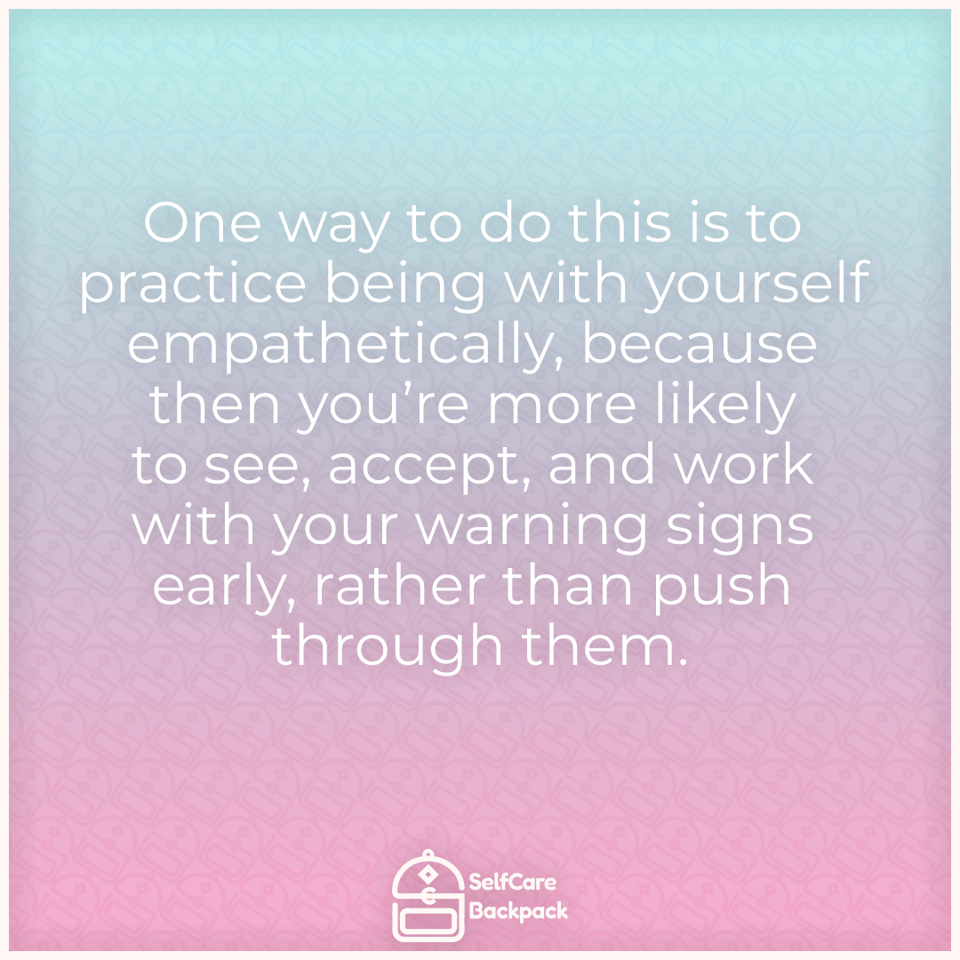Self-empathy
This is the last of the empathy as a skill series. The next free newsletter (out on 19th June) will be a collection of things that didn’t fit in the series but I still want to share about empathy. If you have any questions I’m happy to answer them in comments, in private, or as part of the next newsletter.
Also, this newsletter is entirely reader supported, and I appreciate your readership. This post is free, so please feel free to share it with anyone who might find it useful. And maybe subscribe, if you haven’t yet.
In this part I want to talk about turning that empathy inwards. I’ve mentioned multiple times that empathy requires self awareness. I know some of you will have had thoughts similar to ‘I’m very self aware. Sometimes I’m too self aware, to be honest’.
This is where I started. A lot of self-awareness, a lot of negative self talk, and a lot of shame. I’m still on this journey, but I’m a lot better than I used to be, and I like spending time with myself now (most of the time).
The reflective questions in the last two parts were a starting point to think about your relationship with empathy, and how it works for you. Maybe it told you something new, maybe it didn’t. Maybe you’re noticing how you act and are present in different types of conversations now.
Spending time reflecting on empathetic conversations after they’ve happened will help you find out your patterns. What do you notice in people when actively listening to them? What do you find easy? What do you find difficult?
These questions aren’t meant to be judgemental. Everyone finds some things difficult about empathy. In fact, part of the training in being a therapist or counsellor is figuring out what you find difficult, why, and how to manage it. This is just a way to know how you are, and maybe why.

But empathy isn’t just about reflecting on difficult things. Here’s some nice things to reflect on:
Why is caring for others' feelings important to you?
What has made you proud and excited recently? Write about it.
Where, and in what people or activities, do you find your happiness and fulfilment? Write about it.
Are you your greatest supporter and friend right now? How can you be a bigger support system for yourself?
Reflecting on joy, how it feels to you and where it comes from is a great way to get to know yourself, and start to meet yourself with joy. I often find that people only reflect on things that are bothering them, or things they want to change or improve, but journaling positively is a really good practice to get into.
We know that practising gratitude can help with mood, mental health, and resilience. Looking at the positive in our lives in a realistic way can also help. It also means we’re more likely to find those joyous experiences, when we can be present to enjoy them, and reflect on that joy as well.
This also helps you practise approaching yourself and your experiences with curiosity.
The questions in this series are ones to approach with a lack of judgement, just open joyful exploration. This can help you have the same open curiosity about any of your experiences.
Learning self-empathy is really important. It can help you integrate experiences, sit with feelings, and build kind resilience in yourself.
It can also drive a sense of agency. How does your internal world affect your external world, and vice versa? What do you need to be safe, happy, and productive? What makes you tick? Where do you flourish?
Exploring these needs and causes and effects can help you make practical changes in your environment and habits (finding your warning signs and then planning low energy interventions is so much easier when approached with curiosity).
It can help you make space internally to metaphorically step back and ground yourself in any given moment. The only thing I still resonate with from my experience with CBT is the concept of responding vs reacting.
Often when we’re in stressful, anxious or otherwise high energy situations, we’re reacting on instinct, which isn’t always helpful. Building in techniques to help you step back and take a moment to respond to a situation can be a massive help to coping with these situations. One way to do this is to practice being with yourself empathetically, because then you’re more likely to see, accept, and work with your warning signs early, rather than push through them.
This can also be helpful in your internal monologue. If you often jump to shaming yourself, or beating yourself up about things, building in some mental space can help you disrupt these automatic thoughts before they get too heavy. If you can start bringing curiosity into the mix, or general kind openness to your situation, you can start to change that self-talk.
Why would you want to spend time with someone who’s mean to you? That applies to yourself as well. If you’re mean to yourself a lot, you’re not going to have a fun time in your own head, so spending time there, reflecting, and getting to know yourself is going to be really difficult. Learning to push back against that negative self-talk to a more realistic, gentle exploration of feelings and situations will help so much when it comes to generally having a good relationship with yourself.
Add a comment: